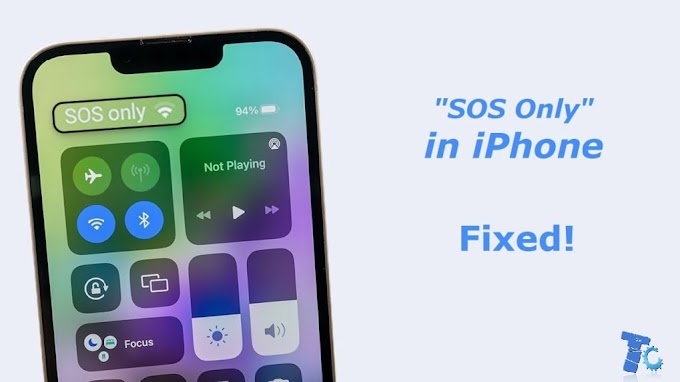
Custom code is code you write from scratch rather than a prepackaged solution or code built for a particular purpose. Custom coding can be beneficial if you have a specific problem to solve and you don't want to modify an existing software package to do that for you. It might also be necessary if the current software doesn't support the syntax your programming language requires. Let's learn out what customer code meaning and what it's all about.
What is Custom Code?
Possibly, you're thinking. I want that blue Honda Civic. Now that the car is built and painted, I'm in charge of driving it and taking care of its maintenance. I'm also in charge of putting all its electronic components in place and getting it road-legal. In other words, if the automobile breaks down or needs upgrades, or repairs, you'd have to take care of it yourself or pay someone else to do it for you. That's what custom code means.
Contrary to popular belief, a prepackaged, ready-to-drive Honda Civic might be delivered to your home or office. If something goes wrong with the vehicle, you are instructed to bring it to a certified Honda Civic Repair center, where they will fix it and do any essential maintenance for free. There are no modifications to the car in this case. As you can see, writing custom code takes a lot of time and effort, and it's even more challenging to update.
How to use Custom Codes?
Using custom codes is a vital tool that allows you to automatically modify your message to the profile of your guests, as well as their inquiry or reservation and the listing you have picked. You can insert single lines of text or entire paragraphs into your templates in the form of custom codes. To differentiate themselves from the shortcodes used by our system, which always begin and end with a single percent, they always start and end with two percent.
In contrast to shortcodes, they are not intended to be substituted with data from Airbnb. Instead, these are fragments of content or even entire paragraphs that are significant to sure guests or listings but are irrelevant to others.
Point-to-point integration using specialized code
Point-to-point integration is a common practice employing custom code to link two separate computer systems. Within an organization, point-to-point integration necessitates the creation of individualized code by developers to connect the many applications, outlines, data, and devices.
Custom-coded point-to-point connection can not scale and is not future-proof. Even though it permits communication between data fast and simply, it cannot be automated. Integration from point to point establishes linkages between data on a one-to-one basis. This results in "spaghetti architecture," which describes a tangled, fragile, and difficult-to-keep system that is difficult to manage.
Custom coding and depending on standalone integration technologies may generate issues in the long term, even though custom coding and point-to-point integration may appear to be a simple and speedy solution to the challenge of integration in the near term. This results in problems with scalability and influences the agility of the business.
Beyond custom-coded point-to-point integration
Enterprises need to stop relying on explicitly programmed point-to-point integration and start thinking about a new integration strategy founded on reusable, purpose-built APIs. This strategy is also known as API-led connectivity. This method allows adding new systems or modifying existing ones as easy as connecting LEGO bricks, simplifying plug-and-play integration. The data is connected to the apps using modern maintained APIs, and these APIs can be easily discovered by using self-service. In addition, they can be controlled by using governance.
Retailers have the ability, thanks to API-led connectivity, to combine data from a wide variety of apps, systems, and devices and to expose that data so that they may either create new applications or derive more excellent value from the applications they already have. API-led connectivity, as opposed to custom-coded point-to-point integration, makes it easy to make changes by utilizing APIs to simplify the process of connecting assets, systems, or data; if something needs to be added, changed, or subtracted, help can be plugged or unplugged with ease. API-led connectivity also makes it easy to make changes.
Conclusion
Writing custom code is essential for a variety of reasons:
- Customers may need a feature that isn't built into your software.
- Writing custom code will make your application run faster and with fewer bugs.
- Writing custom code lets you see precisely which parts of your application are causing the most problems so that you can focus on those parts later.
Custom code is a critical component of the API Development Lifecycle (ADL) process. Though some code can be semi-automated, creating custom code helps ensure that your product is compliant with the latest standards and secure from outside attacks. If you're interested in learning more about creating custom APIs, please reach out to our team of expert developers today.






![Performance Marketing - What Is it & How It Works [+ 6 Tools You Can Use]](https://blogger.googleusercontent.com/img/b/R29vZ2xl/AVvXsEj0akcIPU36HHfqWoYrb2LCMNG8OvxPb9drUYKWJZvSXmfbJG0OrjN5jfzTFDmT-9MKcuZt-G-66PiLlIVjgX1DwCNzHeIMW0pjW7W3IB2rZYzx4ISbL2T6JC4M38eubqHxQ3e71l2_n7oxh2f2QdV3d1prJ6z9HQNsSyfjtO18diLxEZg-5wD-I6RINFY/w680/performance_marketing-min.png)



1 Comments
Great article! Custom code is essential for creating unique and optimized digital solutions tailored to specific needs. Similarly, a well-designed minimalist phone case enhances a device by providing protection without unnecessary bulk. At Fiberborne, we craft ultra-thin iPhone and Android cases that combine durability with sleek, modern aesthetics—perfect for everyday carry. Thanks for sharing this insightful post!
ReplyDelete